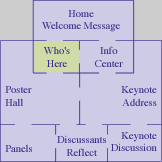|
abstract:
|
Funded under the guidelines for Local Systemic Change (LSC) through Teacher Enhancement in
Mathematics, the four-year Realizing Achievement in Mathematics Performance (RAMP) project supports
all 980 teachers of mathematics, grades K-12, in the Durham Public Schools for professional development,
implementation of standards-based instructional materials in mathematics, and the systemic support to
sustain the implementation. Durham Public Schools (DPS) is the sixth largest public school district in North
Carolina, with approximately 29,000 students in grades K-12.
Through participation in the NSF-funded Leadership for Urban Mathematics Reform project with the
Education Development Center (EDC) from 1994-97 and with further district support for leadership
development since that project ended, DPS has developed a corps of 34 teacher leaders in mathematics,
who now constitute the project's Mathematics Professional Growth and Development (MPGD) Team.
EDC continues in Project RAMP as a provider of K-12 mathematics education leadership development for
the school-based MPGD team members. Various types of professional development in RAMP (e.g.,
courses on mathematical content and pedagogy, curricular implementation workshops, school-based study
groups, demonstration teaching and individual coaching) are led by mathematicians and mathematics
educators from the Durham area, consultants from the publishers of the DPS-adopted mathematics
instructional materials, the school-based teacher leaders, and twelve, full-time, district-wide resource teachers.
Elementary schools are implementing Investigations in
Number, Data, and Space. Middle Schools are implementing Mathscape.
The high schools are offering a new integrated mathematics course sequence alongside a traditional
sequence, with NSF-supported Contemporary Mathematics in Context (Core Plus) materials in the integrated courses.
In addition to the required LSC core evaluation, RAMP plans an extensive evaluation component around
student achievement. Because the district already has an extensive database of achievement test results,
Project RAMP will be able to conduct trend analyses, using the implementation date of the new materials
as a "break-point."
Cost sharing and commitments on behalf of the purchase of new instructional materials approximate 75% of
the NSF request. Cost sharing is derived from DPS local and state monies.
|


